NEWS & UPDATES

#LetMEVote
Use our #LetMEVote social media toolkit to help educate your fellow Mainers about why they should Vote No on Question 1 in November! Access toolkit The results of Maine Referendum Question 1 will have a huge effect on voting rights in our state. On November’s ballot, there is a referendum question asking whether voters should be

An invaluable community connection
Preble Street’s work is never done in isolation. We are continuously making connections with other social service providers and nonprofits to better serve clients and the needs of the community. This month, we are highlighting a key partner of Preble Street Rapid Re-Housing Services and Veterans Housing Services, Trinity Jubilee Center. Serving over 5,000 people

Staff highlight: Richard Kepler — “Having the goal and willingness to love people”
Preble Street staff are #CompassionInAction, and we want you to get to know them! This month we’re introducing you to Richard Kepler, Housing Support Staff at Florence House Name, title, and program: Richard Kepler, Housing Support Staff (overnight shift), Florence House How long have you worked at Preble Street? It will be nine years at the end
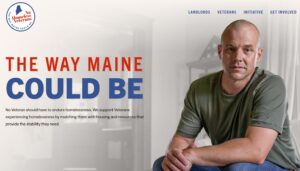
No Homeless Veterans
Preble Street Veterans Housing Services (VHS), in partnership with other Veterans services agencies* across the state have come together to dramatically reduce Veteran homelessness in Maine. Earlier this month, VHS and partners launched a housing surge to get as many homeless Veterans as possible into housing in the 100 days leading up to Veterans’ Day.
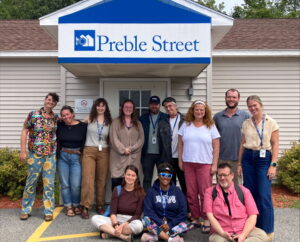
Rapid Re-Housing: A proven solution to homelessness
“Preble Street’s Rapid Re-Housing team made it possible for me to move with my two young children. I had already secured housing and made the decision to leave a long history of abuse behind — but I had no car, no support, and no way to get our U-Box shipped. That final step was out

5 things to know…about recent federal efforts to criminalize homelessness
If ensuring the basic human rights of people who are vulnerable and struggling in our community is important to you, right now is a critical time to speak up and out. In the last few weeks, the White House has issued a directive to forcibly remove people experiencing homelessness from Washington, D.C., and an executive
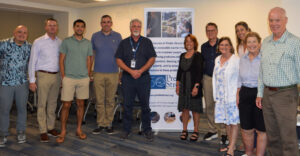
New Preble Street Board: Ready for the road ahead
Preble Street is excited to share its new elected officers for its Board of Directors for 2026-2028 (fiscal year beginning on July 1, not calendar year). The new officers are: Chip Leighton, President Yemaya St. Clair, Vice President Joann Bautista, Secretary Justin Rosner, Treasurer “Preble Street has really smart and committed people serving on our
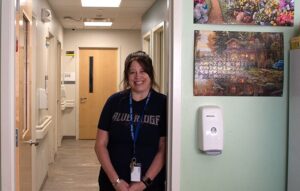
Staff Highlight: Caitlin Tobin – “I learn so much from our clients”
Preble Street staff are #CompassionInAction, and we want you to get to know them! This month we’re introducing you to Caitlin Tobin, 1st Shift Case Manager at the Recuperative Care Program. Name, title, and program: Cait Tobin, Case Manager, Recuperative Care Program (RCP) How long have you worked at Preble Street? I’ve been here for

Funding cuts endanger unsheltered youth
Much like the Street Outreach Collaborative but with a focus on youth, Preble Street’s Teen Outreach Specialists provide resources and basic needs to young people living outside. Though Preble Street is exploring ways to continue this lifesaving program, it is likely coming to an end or will have its services dramatically cut. On July 9,
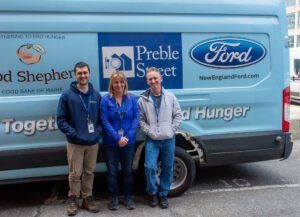
5 years of “social work without walls”
When someone is focused on day-to-day survival, there is little time to attend to long-term goals. Accessing the limited available resources requires sorting through a convoluted web of systems and can be impossible to navigate alone. Every day for the past 5 years, the small but mighty Street Outreach Collaborative (SOC) at Preble Street works
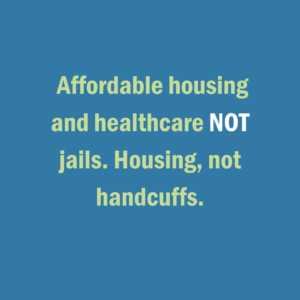
Statement on White House Executive Order on Homelessness
We are angry today. Angry and pissed off at this awful executive order from the White House that will criminalize homelessness and incentivize communities, states, and agencies to stop doing the things that we are doing and have already proven to work to end homelessness. Housing First with 24-hour supportive services works. Harm reduction approaches
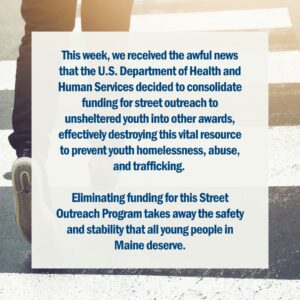
Statement on elimination of funding for Youth Street Outreach
On Wednesday night, we received the awful news that the U.S. Department of Health and Human Services decided to consolidate funding for street outreach to unsheltered youth into other awards, which we know effectively destroys this vital resource to prevent youth homelessness, abuse, and trafficking. Our youth Street Outreach Program (SOP) serves young people who